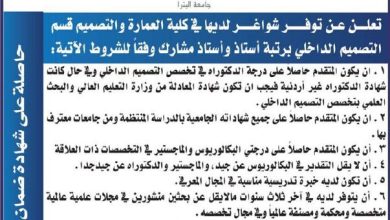Programme Policy Officer, (Conflict Advisor), 11 mths, Johannesburg, SA

.
WFP celebrates and embraces diversity. It is committed to the principle of equal employment opportunity for all its employees and encourages qualified candidates to apply irrespective of race, colour, national origin, ethnic or social background, genetic information, gender, gender identity and/or expression, sexual orientation, religion or belief, HIV status or disability.
ABOUT WFP
The United Nations World Food Programme is the world's largest humanitarian agency fighting hunger worldwide. The mission of WFP is to end global hunger. Every day, WFP works worldwide to ensure that no child goes to bed hungry and that the poorest and most vulnerable, particularly women and children, can access the nutritious food they need.
In emergencies, WFP gets food to where it is needed, saving the lives of victims of war, civil conflict and natural disasters. After an emergency, WFP uses food to help communities rebuild their shattered lives. Present in nearly 120 countries, the organization has the global footprint, deep field presence and local knowledge and relationships necessary to provide access to nutritious food and contribute to the lasting solutions, especially in many of the world’s most remote and fragile areas. We manage an operating budget of approximately $5.9 billion each year, distributing 12.6 billion rations to those most in need. We reach an average of 80 million people with food assistance in around 80 countries each year.
The World Food Programme office in Johannesburg is a Regional Office coordinating and supporting the delivery of humanitarian assistance to 12 Southern Africa countries including Angola, Democratic Republic of Congo, Eswatini, Lesotho, Madagascar, Malawi, Mozambique, Namibia, Republic of Congo, Tanzania, Zambia, Zimbabwe. For more on WFP and what we do, please go to http://www.wfp.org/videos/zero-hunger
JOB PURPOSE
This role of the Conflict Analysis both strategic and operational. Conflict and insecurity remain the one of the main drivers of humanitarian needs within the RBJ region, particularly in Democratic Republic Congo and Mozambique which are affected by ongoing conflict in the last several years. There is also a growing tension and potential civil unrest some other Southern Africa Countries including Eswatini, Zimbabwe and Madagascar partly due to economic crisis and income inequalities. The conflict in the great Lakes region is one of the main contributors of refugees and internally displaced people in the Southern Africa Region. The large number of IDPs, refugees and asylum seekers coupled with the impacts of fuel, fertilizer, fuel price hikes due to the impacts of the war and COVID-19 are likely to pose further instability and tension among the food insecure populations, including those in urban areas.
This role is intended to build the capacity of staff in Country Offices in Southern Africa region to undertake conflict sensitivity analysis from a food security and overall humanitarian assistance needs assessment perspective, to integrate conflict sensitivity into operations there by contributing for peaceful coexistence and stability, and to support the development of access strategies as well as WFP’s role in humanitarian negotiations in conflict, insecure and transitional settings.
The effectiveness of humanitarian action hinges on access – access by humanitarians to people in need, and by people in need to essential goods and services. Negotiation is one of the most important enablers of access in situations of armed conflict.
The Programme Policy Officer will be responsible for increasing the application of conflict-sensitivity in WFP operations; and enhancing WFP’s programmatic offering with respect to stabilization and contribution to peace. This will be achieved through a combination of technical support, capacity building, coordination, partnership development and knowledge management.#
In addition, the Officer will support the WFP’s on policy and operational direction on issues related to humanitarian access and engagement with relevant stakeholders, including humanitarian actors, communities, parties to the armed conflict, and provide advice on diverse issues related to safeguarding humanitarian principles and ensuring the effective delivery of WFP assistance and protection activities.
KEY ACCOUNTABILITIES (not all-inclusive)
Technical support
1. Analysis: conflict sensitivity/peace contribution – In conflict-affected and transitional settings, support WFP Country Offices, lead and undertake political and contextual analysis and analyse the context/conflict and assess the conflict sensitivity of WFP’s operations and partnerships across the entire portfolio, by identifying programmatic and operational conflict-related risks including choices of transfer modalities, and proposing mitigation measures, as well as opportunities to adjust and design WFP’s interventions to contribute to peace. In addition, support the incorporation of the conflict sensitivity lens in the participatory planning and response among refugees and host communities, internally displaced people etc and contributing to the broader protection efforts.
2. Capacity Building: Initiate, plan and implement efforts that build the capacity of WFP staff in the region including building systems and processes to undertake conflict sensitivity analysis and assessments. Build and maintain a cadre of expertise across the region and set up focal points who will champion conflict sensitivity, humanitarian access and peace building approaches in all WFP programming. Providing capacity building trainings on Conflict Sensitivity, humanitarian access, contribution to peace to CO focal points, develop contextualized training materials and guidance tools and supporting action plan developments.
3. Advise: development and implementation of access strategies – Based on analysis above, advise WFP Country Offices on components, good practices, key actors and concerns to be considered in the formulation of strategies to reach affected communities and facilitate their access to essential WFP assistance and services. This includes advising and coordinating with Programme, ERPs, Humanitarian Military Advisors, Security Officers, Supply Chain colleagues at the CO and RB levels to ensure coherent and well-informed engagement, regular input and information sharing as situations evolve.
5. Community Engagement and Communication Strategy- Contribute for effective community participation through identifying state and non-state actors, armed groups, community, and other local structures from the conflict sensitivity approach; and design programmes to contribute for peaceful coexistence and social cohesion and mitigate protection and security risks. Close monitoring of the conflict dynamics and risks for preparedness and early action and identify peace actors and access focal points in the hotspot areas to facilitate the humanitarian assistance.
Partnerships
6. Inter-agency engagement – Ensuring that WFP is visible and actively participating in relevant inter-agency discussions and coordination concerning conflict sensitivity and access, and WFP’s role in contributing towards peacebuilding outcomes. This includes forging partnerships with traditional and non-traditional partners (including peacebuilding actors), think tanks, academia and other experts to improve performance in this area.
Knowledge Management
7. Documentation and dissemination – Documenting good practices and learning from across the region and ensuring that it is systematically disseminated to feed the corporate development of guidance and tools and among countries offices of the region. Ensure that Country Offices are acting in a timely manner on any new opportunities to enhance their engagement on conflict-sensitivity, humanitarian access and contribution to peace opportunities (including emerging funding windows). Participate in learning events and activities to build the knowledge across the emergent peacebuilding and conflict sensitivity network across WFP.
FUNCTIONAL CAPABILITIES
|
Capability Name |
Description of the behaviour expected for the proficiency level |
|
Programme Lifecycle & Food Assistance |
Displays ability to identify the main hunger problem at the national or subnational level to design and implement context-specific programmes that integrate complex analysis and the full range of food assistance tools. |
|
Transfer Modalities (Food, Cash, Voucher) |
Demonstrates the ability to design, implement, monitor and provide oversight over effective and efficient programmes deploying different transfer modalities. |
|
Broad Knowledge of Specialized areas (i.e. Nutrition, VAM, etc.) |
Demonstrates the ability to interpret basic data in the context of WFP specialised fields to contribute to technical programme design, implementation and monitoring. |
|
Emergency Programming |
Displays ability to translate understanding of programme principles in emergencies and protracted conflict situations into relevant, effective, and context specific approaches |
|
Strategic Policy Engagement w/ Government |
Develops thorough recommendations using multiple inputs (e.g., government counsel, research, own experience) to strengthen national or subnational entities and government owned food and nutrition security programmes.. |
STANDARD MINIMUM QUALIFICATIONS
|
Education: |
Advanced academic degree in international relations, development studies, conflict studies, or another relevant discipline Essential |
|
Experience: |
At least 5 years of professional experience related to supporting and analysing governance structures and institutions. |
|
Language: |
Essential – Fluency in English (oral and written). Desirable – Knowledge of French and Portuguese |
OTHER SPECIFIC JOB REQUIREMENTS
Technical Skills & Knowledge:
Essential
Commitment to WFP’s mission and values
Strong analytical skills
Strong communication skills
Strong influencing and networking skills
Ability to work independently under minimal supervision
Proficiency in Window MS office (Word, PowerPoint, Excel, Outlook)
Desirable
Technical training in areas that are directly or indirectly relevant to peacebuilding and/or conflict-sensitivity
Competencies
Knowledge of WFP’s operation and previous experience with WFP is considered an asset.
DESIRED EXPERIENCES FOR ENTRY INTO THE ROLE
- Experience in supporting strategic planning processes to integrate conflict and peace
- Experience in negotiating humanitarian access and developing access strategy in complex emergency setting with state and non-state actors.
- Experience in design and completion of conflict analysis
- Experience in capacity building (training, accompaniment)
DEADLINE FOR APPLICATIONS
The Vacancy Announcement will close on 18 April 2023, 11:59 South African time
.
Qualified women applicants, people with disabilities and candidates from developing countries are especially encouraged to apply.
WFP has a zero-tolerance approach to conduct such as fraud, sexual exploitation and abuse, sexual harassment, abuse of authority and discrimination. All selected candidates will be expected to adhere to WFP’s standards of conduct and will therefore undergo rigorous background verification internally or through third parties. Selected candidates will also be required to provide additional information as part of the verification exercise. Misrepresentation of information provided during the recruitment process may lead to disqualification or termination of employment
WFP will not request payment at any stage of the recruitment process including at the offer stage. Any requests for payment should be refused and reported to local law enforcement authorities for appropriate action.




